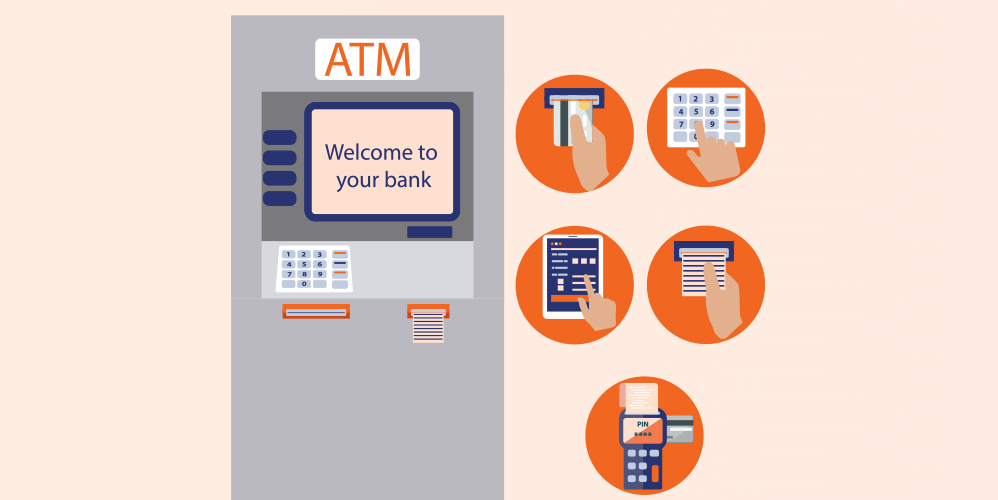
Mastering Monthly Average Balance: A Guide to Financial Security
14 Feb 2024

Table of Content
In the ever-evolving world of personal finance, we often come across terms and concepts that can feel as elusive as trying to catch a fleeting breeze. "Monthly Average Balance" is one such term. Many individuals often perceive the minimum balance requirement as a tactic banks employ to restrict access to their funds or increase their earnings. However, this common belief doesn't necessarily hold true.
Imagine it as a monthly financial checkpoint that you must pass to ensure a smooth financial journey. In this blog, we'll unravel the concept of Monthly Average Balance, why it matters, and how it influences your financial stability. So, let's begin by understanding what exactly Monthly Average Balance is and why it's so important.
What is Average Monthly Balance?
The Monthly Average Balance, often abbreviated as MAB, is the average balance you are required to maintain in your savings or current account throughout a calendar month. It's not about a single day's balance but the average of your daily closing balances over a month. At the close of each month, the Average Monthly Balance Calculation takes place, and any inability to uphold this required average balance will lead to the imposition of penalties.
Why is it important to maintain a Monthly Average Balance?
The importance of keeping a minimum Monthly Average Balance in your account lies in its role in assisting the bank in managing funds efficiently and offering a range of complimentary services and rewards to customers. Additionally, the funds you deposit are utilized by the bank to extend credit to borrowers and invest in financial instruments, such as Mutual Funds and securities. This not only promotes stability within the bank but also contributes to the overall economic stability, thereby safeguarding your investments.
Let's explore more:
- Most banks require you to maintain a specific MAB to avoid penalty charges. Falling below this threshold could lead to monthly maintenance fees or even account closure. By staying above the MAB, you keep your account in good standing and avoid incurring unnecessary charges.
- Your MAB can also impact your creditworthiness. Banks use this metric to assess your financial stability and responsibility. Consistently maintaining the required MAB demonstrates your ability to manage your finances, which can be helpful when applying for loans or credit cards.
- • Maintaining an MAB often grants you access to a range of banking services and privileges. These could include free checks, preferential interest rates, and even discounts on various financial products. It's a way for banks to reward their loyal and responsible customers.
Monthly Average Balance Calculation
The calculation of the Average Monthly Bank Balance involves averaging the closing balances in your Savings Account at the end of each day throughout a given month. In the case of a 31-day month, you can calculate it by summing up the closing balances for all days and dividing this total by 31. To make it easy to remember, here's a simple formula:
MAB = (Sum of daily closing balances)/(Number of days in the month)
Suppose you have a savings account with a bank that requires an AMB of INR 10,000. Here's how it's calculated:
Daily Balances: For each day of the month, the bank records the closing balance in your account. Let's say your daily balances for a 31-day month are as follows:
Day 1: INR 11,000
Day 2: INR 10,500
Day 3: INR 9,800
Day 4: INR 10,200
...
Day 31: INR 10,500
Calculate the Total: Add up all the daily balances:
INR 11,000 + INR 10,500 + INR 9,800 + INR 10,200 + ... + INR 10,500 = Total Balance for the Month
Calculate the Average: Divide the total balance by the number of days in the month:
Total Balance for the Month / 31 = Average Monthly Balance
In this example, if the total balance for the month is INR 321,000, the Average Monthly Balance would be:
INR 321,000 / 31 = INR 10,355.48 (rounded to the nearest paisa)
To meet the bank's monthly average balance requirement, you would need to maintain an average daily balance of at least INR 10,000 over the entire month.
Minimum Average Balance Requirements
Minimum Average Balance (MAB) requirements vary from bank to bank and often depend on the type of account you hold. Meeting the MAB is essential to avoid penalty charges and enjoy various banking benefits and services. Banks calculate the MAB by averaging the daily closing balances in your account throughout the designated time frame. If your account falls below this minimum balance at any point during the month, you may incur fees or other consequences, such as the suspension of certain privileges.
To find out the specific MAB requirements for your account, consult your bank's terms and conditions or speak to a bank representative. Keeping your account balance above the minimum average balance is an important aspect of responsible financial management and ensures you can maximize the benefits of your banking relationship.
Significance of Maintaining a Healthy Minimum Average Balance
A healthy Minimum Average Balance (MAB) in your bank account is not just a requirement but a key factor in your financial well-being. Understanding its significance can help you make the most of your banking relationship, avoid penalties, and unlock various financial benefits. In this section, we'll explore why maintaining a healthy MAB is essential.
- Keeping your account above the MAB ensures you won't incur unnecessary charges, which can add up over time.
- Meeting the MAB often grants you access to additional banking services and privileges, such as free checks, preferential interest rates, and discounts on various financial products.
- A consistently maintained MAB can positively impact your creditworthiness, making it easier to secure loans and credit cards.
- Your MAB serves as a financial safety net, ready for use in case of unexpected expenses.
- Committing to a monthly average balance encourages a regular savings habit, leading to increased savings and investments over time.
- Maintaining your MAB encourages you to budget and keep track of your finances, promoting financial discipline.
Tips for Managing Monthly Average Balance
Now that you understand the importance of Monthly Average Balance, let's explore some practical tips to help you manage it effectively.
- Monitor Your Account: Keep an eye on your account balance to ensure it stays above the required MAB.
- Automate Savings: Set up automated transfers to your savings account to ensure you consistently maintain the MAB.
- Budget Wisely: Create a budget to manage your expenses and allocate funds for your MAB.
- Choose the Right Account: Select a bank account that matches your financial habits and goals to make it easier to maintain the Monthly Average Balance.
- Review and Adjust: Periodically review your account statements to track your progress and make adjustments as needed.
Conclusion
Maintaining a healthy Minimum Average Balance in your bank account is more than a financial obligation; it's a smart financial move. By adhering to MAB requirements and managing your account effectively, you can not only avoid penalties but also enjoy a range of banking services and financial benefits. Remember that your Monthly Average Balance plays a role in your creditworthiness and overall financial stability, making it an essential aspect of responsible financial management.
Popular Articles
Related Articles


The Importance of Pension Funds: Secure Your Future with Steady Retirement Income








-
Disclaimer
The contents of this article/infographic/picture/video are meant solely for information purposes and do not necessarily reflect the views of Bank of Baroda. The contents are generic in nature and for informational purposes only. It is not a substitute for specific advice in your own circumstances. Bank of Baroda and/ or its Affiliates and its subsidiaries make no representation as to the accuracy; completeness or reliability of any information contained herein or otherwise provided and hereby disclaim any liability with regard to the same. The information is subject to updation, completion, revision, verification and amendment and the same may change materially. The information is not intended for distribution or use by any person in any jurisdiction where such distribution or use would be contrary to law or regulation or would subject Bank of Baroda or its affiliates to any licensing or registration requirements. Bank of Baroda shall not be responsible for any direct/indirect loss or liability incurred by the reader for taking any financial decisions based on the contents and information mentioned. Please consult your financial advisor before making any financial decision.
Should You Include Your Parents in Group Health Insurance?
Health insurance plays a crucial role in ensuring financial protection against unexpected medical expenses. It not only provides coverage for the policyholder but also extends its benefits to family members, including parents. However, when it comes to including your parents in group health insurance, there are several factors to consider. In this blog post, we will explore the pros and cons of including your parents in group health insurance, discuss alternative options, and provide key considerations before making a decision.
What is Goods and Services Tax (GST) in India - Meaning, Types & Benefits
Goods and service tax (GST) is a value-added tax (VAT) collectively levied on goods and services by the Central and State Governments. Following a dual structure comprising Central GST (CGST) and State GST (SGST), GST plays a significant role in revenue distribution formulated by the GST council. What is the GST Council? The GST Council is a joint forum of the Centre and the States, the Union Finance Minister, The Union Minister of State in charge of Revenue of finance, The Minister in charge of finance or taxation or any other Minister nominated by each State Government, making recommendations to the Union and the States on important issues related to GST.


Leave a Comment
Thanks for submitting your details.